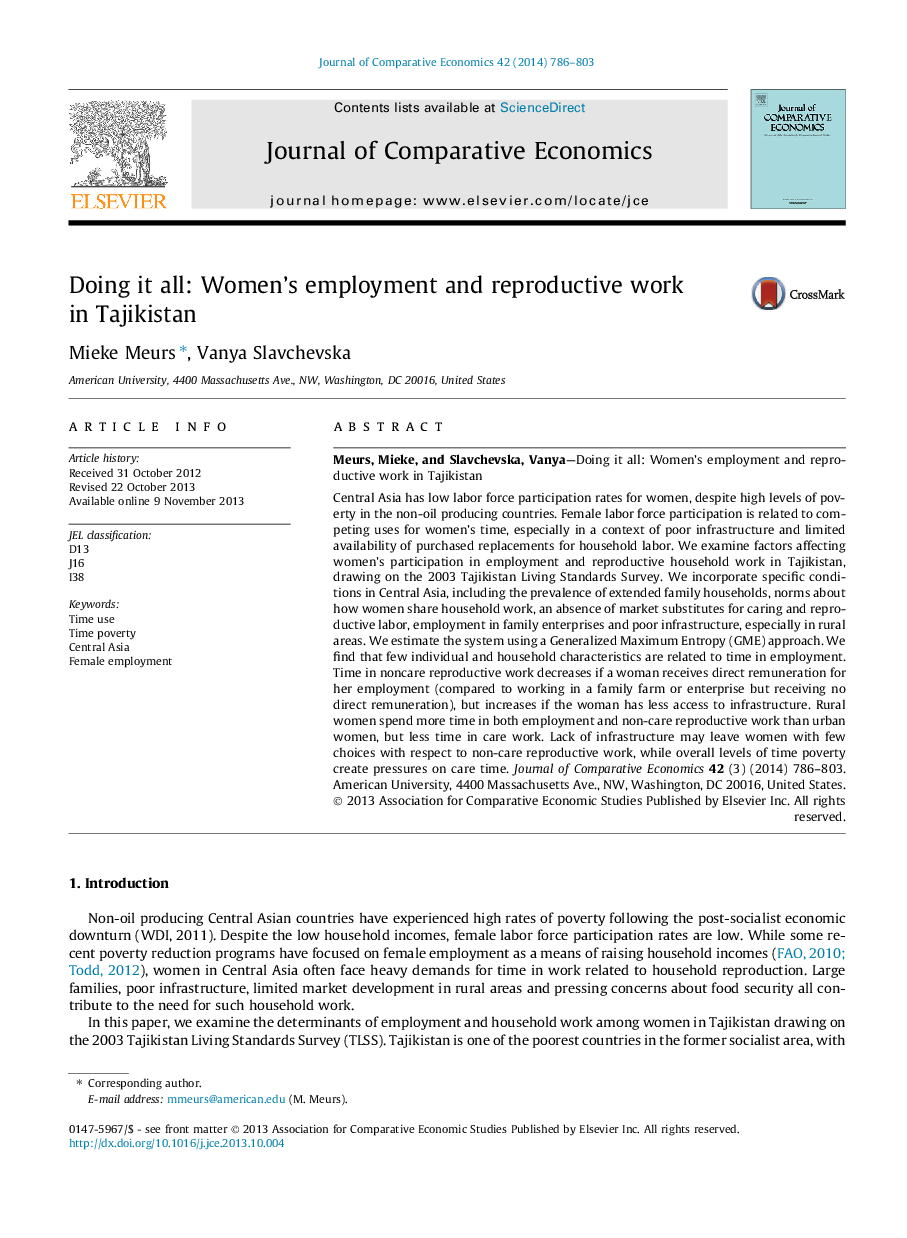| Article ID | Journal | Published Year | Pages | File Type |
|---|---|---|---|---|
| 5092351 | Journal of Comparative Economics | 2014 | 18 Pages |
â¢We examine the determinants of employment and household work among women in Tajikistan.â¢We use a Generalized Maximum Entropy to model the developing country context of decisions.â¢Residence in a rural area is positively related to women's time in employment but education is not.â¢Time in employment is invariant to most household characteristics, while time in care work is not.â¢Infrastruture significantly reduces time in non-care reproductive work.
Central Asia has low labor force participation rates for women, despite high levels of poverty in the non-oil producing countries. Female labor force participation is related to competing uses for women's time, especially in a context of poor infrastructure and limited availability of purchased replacements for household labor. We examine factors affecting women's participation in employment and reproductive household work in Tajikistan, drawing on the 2003 Tajikistan Living Standards Survey. We incorporate specific conditions in Central Asia, including the prevalence of extended family households, norms about how women share household work, an absence of market substitutes for caring and reproductive labor, employment in family enterprises and poor infrastructure, especially in rural areas. We estimate the system using a Generalized Maximum Entropy (GME) approach. We find that few individual and household characteristics are related to time in employment. Time in noncare reproductive work decreases if a woman receives direct remuneration for her employment (compared to working in a family farm or enterprise but receiving no direct remuneration), but increases if the woman has less access to infrastructure. Rural women spend more time in both employment and non-care reproductive work than urban women, but less time in care work. Lack of infrastructure may leave women with few choices with respect to non-care reproductive work, while overall levels of time poverty create pressures on care time.
